Why monarchy is superior to democracy
I argue the case for private property, sovereignty, and natural order
Right off the bat, let me state that this isn’t about wanting to be governed or owned or anything like that. It’s about aligning with natural order, understanding human nature, and celebrating private property. Just like the natural world, humans exist within hierarchies, from families to communities, and so on. There’s nothing wrong with hierarchy or the order that manifests from it.
Most people believe democracy is the best system in history, associating it with liberty and prosperity. They often argue something like, ‘Democracy isn’t perfect, but it’s the best we’ve got,’ usually followed by a quote from Winston Churchill.
I argue that this position is false.
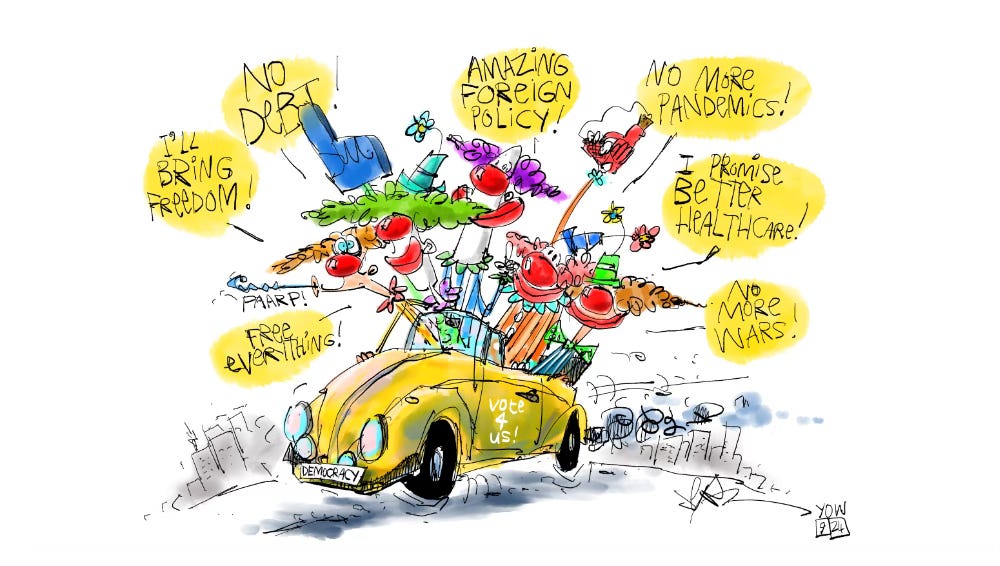
Monarchy would preserve individual liberty more effectively than democracy.
—Hans-Hermann Hoppe
The truth is that, in my view, extreme individualism and hyper-materialism—democratic ideals—are contributing factors to the decline of the West. Humans are social creatures who desire friendship and order, meaning that no man is an island and, as a result, family and community are essential for, not just survival, but also happiness and wellbeing.
Put another way, my argument is not that monarchy is ideal but, rather, that it is more ideal than democracy.
Democracy is a gateway to totalitarianism.
Put another way, voting leads to more voting. Or yet another way, you can't vote your way into prosperity and freedom.
Definitions lives matter
To clarify, democracy is a form of governance in which the people (apparently) hold power, either directly or through elected representatives. In reality, of course, the people don't hold power, as the COVID™ era very clearly demonstrated. A slogan like 'we the people' is little more than sugar-coated nonsense.
Vote harder, bro! Maybe this time it will be different, right?
Well, the truth is that it is never different.
Meanwhile, monarchy is a type of governance in which absolute authority is concentrated in a single, generally hereditary entity such as a king or queen.
There is no 'we the people'.
Because why should there be?
The COVID™ era, complete with lockdowns, vaccine mandates and military force is a pretty good example of why democracy doesn't exist anywhere. Similarly, there is no true example of an absolute monarchy today. The British Royal Family and most other modern iterations are usually ceremonial, serving as tourist attractions. (Furthermore, the British Royal Family, which is not a true absolute monarchy, is part of the very corrupt and evil Black Nobility.)
⚠️ It’s noteworthy that, while monarchies and democracies are currently dead, the former have lasted far longer throughout history. Monarchies, in their definitive form, have existed for thousands of years, while democracies have only lasted a few hundred.
The case for monarchy
In modern times, democracy is the dominant form of government worldwide, but I argue that monarchy remains a superior system due to:
its ability to provide strong, stable leadership
independence from short-term electoral politics
the ability to unite people and provide a focal point for national identity
As Hans-Hermann Hoppe argues in his book Democracy: The God That Failed, if given the choice between monarchy and democracy, the former should be chosen. A monarchy is effectively private governance over private property while a democracy is a public governance over public property. Why do successful companies resemble monarchies, in that they don’t let staff vote every four years for a new CEO? Because voting doesn’t work.
Democracies don’t have long-term security, but monarchies do. When elections change the government, new policies favour short-term political gains and ways to please the voters. For example, Biden changed Trump’s policies, who changed Obama’s policies, who changed Bush’s policies, all in a space of a generation.
A king, on the other hand, can think about policies that may not pay off for decades because he looks at many generations at once. Long-term priorities, like spending money on infrastructure or schooling, are less likely to change.
A monarchy is more stable, therefore.
Monarchies generally provide more steady, long-term leadership that democracies lack by default.
Think of it like this: A (hereditary) monarch ensures leadership continuity beyond the lifespan of a single politician. While elected leaders may serve only a few years before leaving office, a monarch can provide decades of experienced leadership, guidance and symbolic representation of national identity and values. A 'democratically' elected president is merely renting a nice office for four or five years, spending taxpayer money to try stay longer in the nice office.
Monarchs are not tied to special interests like politicians in democratic systems.
Politicians need backing from various groups such as donors, unions, corporations, and lobbyists to win elections. Additionally, outside forces have historically successfully subverted democracies due to their unstable governing frameworks.
This is quite important.
The 2014 overthrow of Ukraine’s government was a coup orchestrated by the United States (and the CIA). Would that have happened under a strong king? Maybe, but far less likely. A king’s authority and influence stem from traditions and customs rather than votes from the masses.
Meanwhile, who actually runs the United States? Certainly not the president. A democratic election is, in essence, mob rule and false hope.
Monarchs don’t feel nearly as much pressure to cater to specific groups. They can therefore focus on the broader national interest instead of short-term political gain or payback to, for instance, the pharmaceutical industry.
Monarchs play an apolitical role, serving as a symbol of national history and continuity that goes beyond political divisions. They symbolise the whole country, fostering collaboration among competitors.
Therefore, voting isn't needed. People can get on with their lives. If they dislike the king, they can leave and live elsewhere. (Which is why it’s in the king’s best interests to be a good ruler.)
Having kings around makes people feel connected to their shared history, which is pretty much impossible for leaders in divided democratic systems. As I said earlier, companies don't vote for a new CEO every five years, so why should countries vote for a new government every five years?
The ideal city-state size, according to Plato, is one where everyone knows one another and can participate in governing.
The monarch can neither know every one of his subjects nor appreciate their particular demands in a huge kingdom. Large realms make it hard for a single monarch to make fair and informed judgements that affect everyone.
The Roman Empire, for example, became way too geographically big.
According to Aristotle, government size is crucial to its operation. He wrote that monarchy works best when the king rules a few thousand people at most. Even the most skilled ruler can't protect everyone in a kingdom larger than a certain size. Plato and Aristotle believed proper governance required direct ruler-ruled engagement. Large monarchies increase the physical distance between the king and the people, decreasing all voices, which weakens royal power and incites unrest.
The test of time
Monarchies have existed for a much longer period of time compared to modern democracies. Both systems have their flaws, sure, but monarchies have a rich history spanning thousands of years, which speaks for itself.
Democracy is a fairly recent system of government, having mostly been active for only a few hundred years. Socrates opposed democracy, believing that wise and skilled individuals should rule. He commended Sparta’s monarchical government for superior management. Plato, also disliked democracy, arguing that those who had gained insight via philosophy should reign. Aristotle thought democracy was ‘too democratic’ and that populist politicians might easily influence the populace into making snap judgements.
Yes, some monarchs can—and have been—rotten apples, but so have democratically elected presidents. And let’s not even get started with rigged elections!
A king values sovereignty more than a democratic president.
In conclusion
Monarchy is better than democracy because it is historically more stable.
A democracy's policies and objectives change with each new government.
A king is less prone to special interest pressures and external subversion.
Absolute monarchies are more likely able to unite a nation through shared traditions.
A king can last for generations, while a democratic president has four or five years (and, if he's lucky, another four or five years).
Under monarchy, the distinction between rulers and ruled is clear. I know, for instance, that I will never become king, and because the king's goal is to transmit his kingdom to his heirs, it is in his interest to leave it to them in the best possible condition.
—Hans-Hermann Hoppe




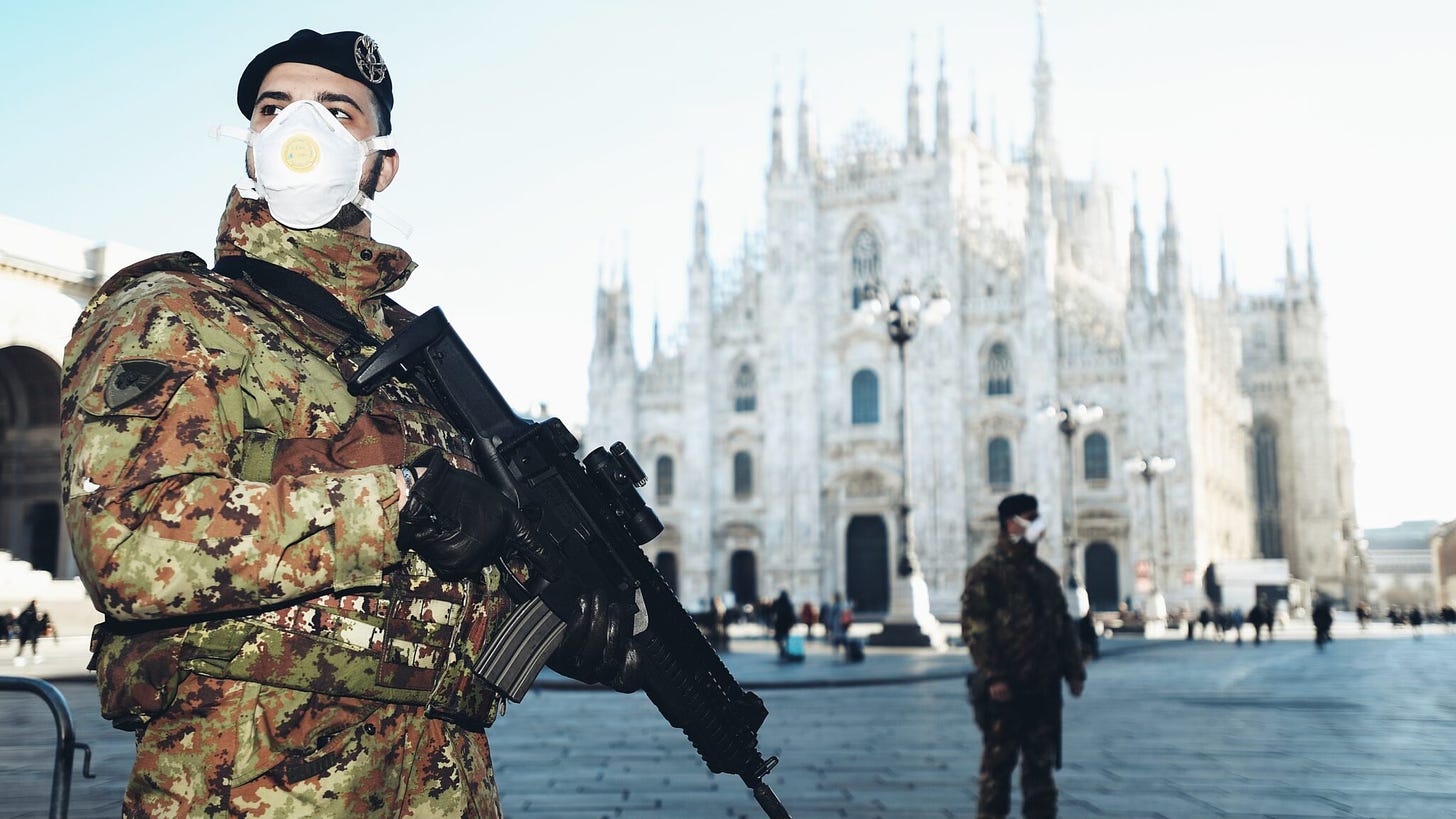

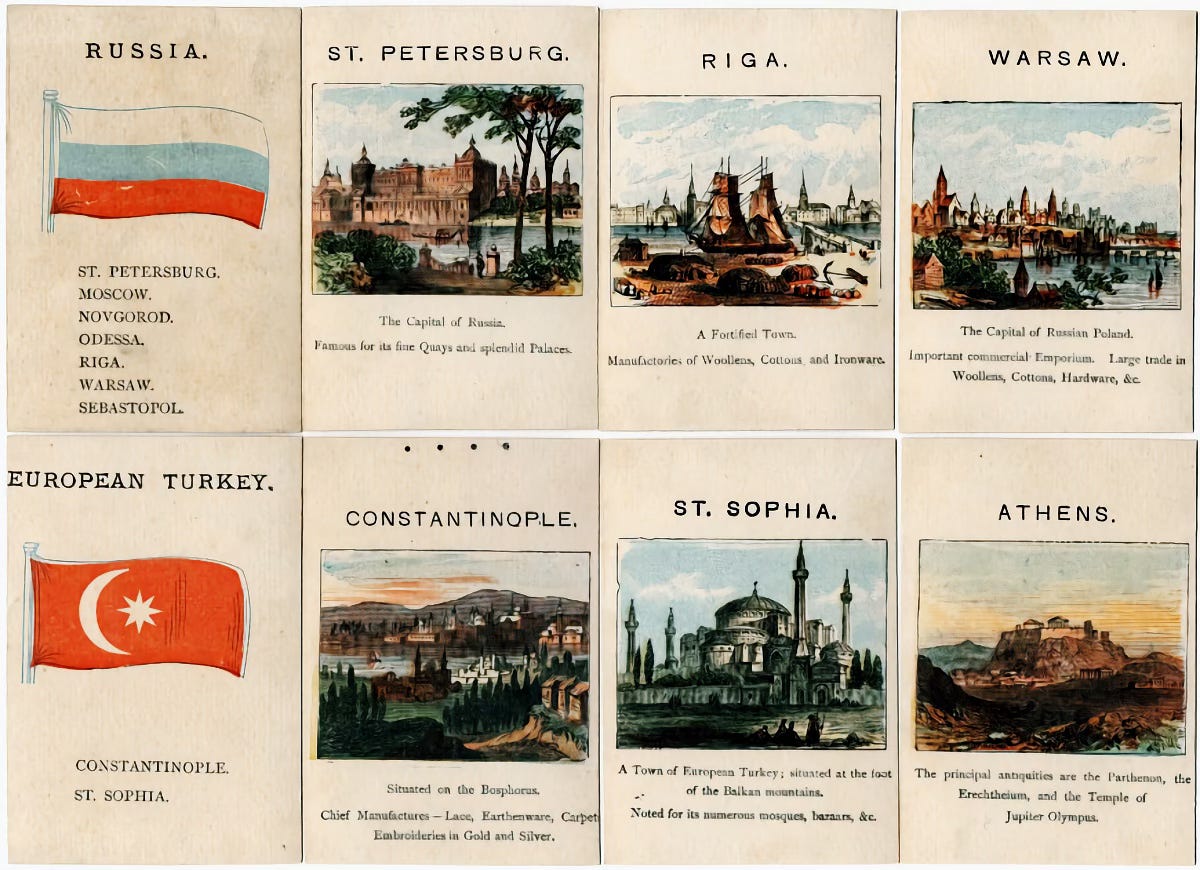


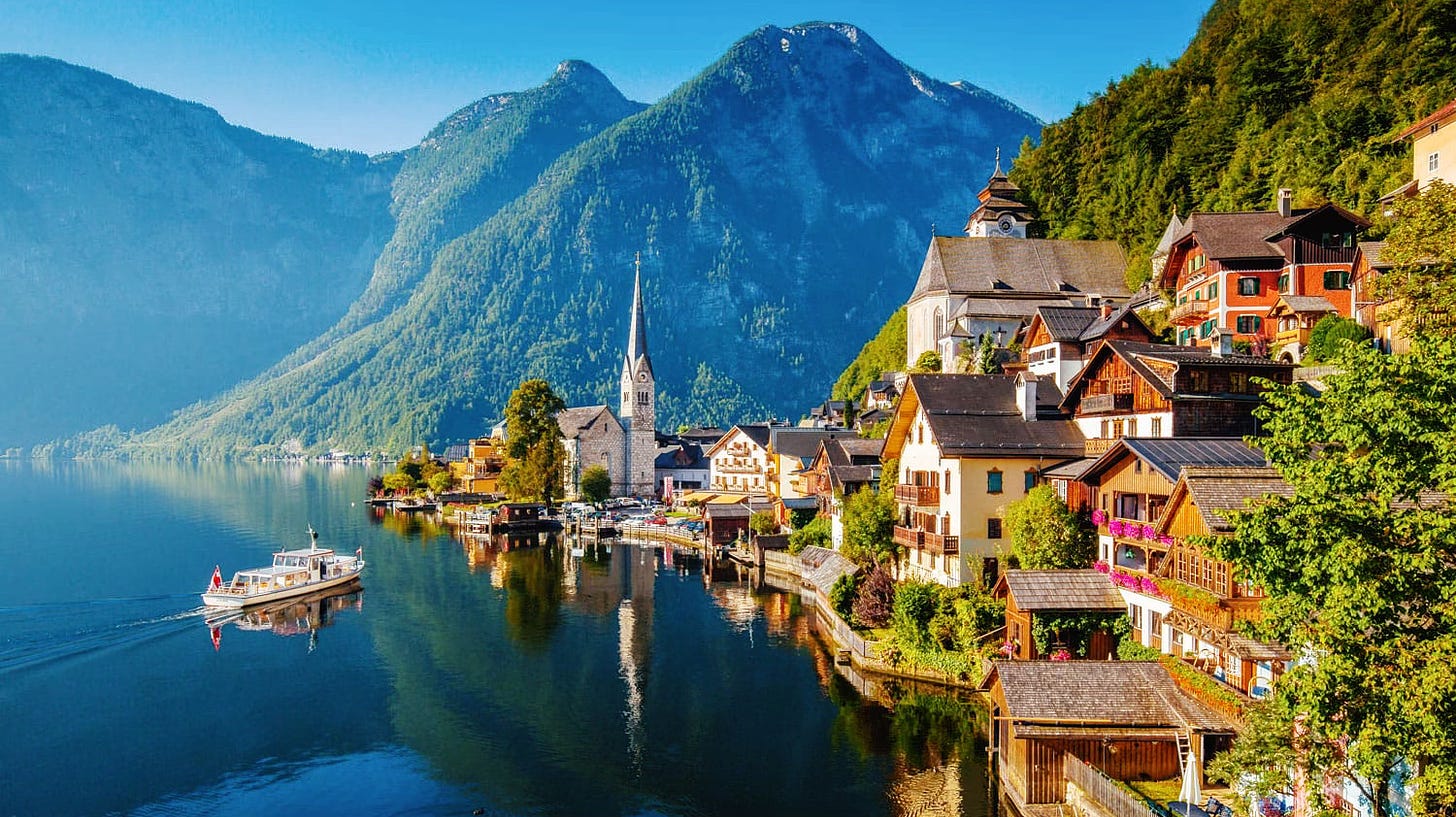
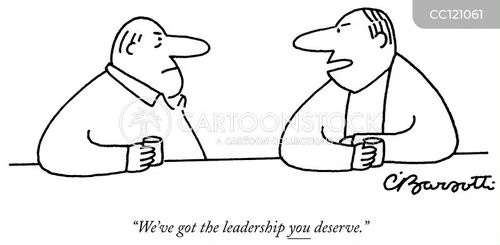
Jerm, time for you to take a serious look at Catholicism. The Papacy is a monarchy (the Pope is a steward, Jesus is the King), the various diocese are run by Bishops who are local monarchs. We call this subsidiary. It has worked for 2,000 years.
Just don’t look into it without knowing the current church has been usurped by an anti-Pope. The Freemasons said they would accomplish this, and they have.
You should interview Patrick Coffin, if you want to know more.
Love your show and substack. My homeschoolers loved your interview with the 12 year old.
So, you are okay with the private property of Bill Gates and the other plutocrats? Thousands of years ago Isaiah condemned this version of private property (Isaiah 5:8) "Woe to you who add house to house and join field to field till no space is left and you live alone in the land." How about Klaus Schwab and his "you will own nothing and be happy?" and the unsaid part of that "because the whole planet will be privatized by the 100 or so elite families and there will be nothing but slavery for the rest." Or how about Adam Smith's observation in 1776 in "An inquiry into the Nature and Causes of the Wealth of Nations" "All for ourselves, and nothing for other people, seems, in every age of the world, to have been the vile maxim of the masters of mankind." Discarding the search for a good oligarchic democracy for a search for a good king is futile. Both are about monopolies but the very few to enslave the many.